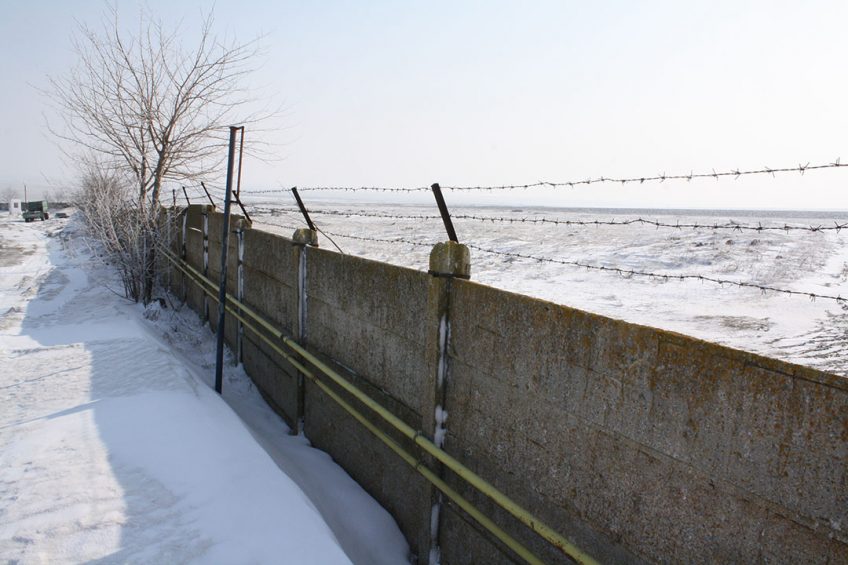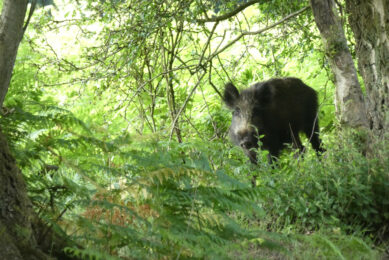How to protect a pig farm from ASF?

African Swine Fever (ASF) is the most worrying of the virus diseases at present, writes management expert John Gadd. Due to mandatory restrictions on pig meat trade in affected areas, this restricts income and wrecks cash flow, both of which can close pig businesses at all levels. What can farm owners do?
There has been much written about ASF recently, so why am I adding to the pile of information? I have been around long enough to have been in the front line of several Foot-and-Mouth Disease and Classical Swine Fever outbreaks, where a lot of mistakes were made in getting both viral outbreaks sufficiently and quickly enough under control.
Mistakes of unawareness rather than ignorance. Because even in the early stages, the advice on how to stem the flood of infection was there but insufficiently acted upon at farm level. We must not make the same errors again. And there are signs that we are doing so.
So… here in 3 consecutive columns (the 3rd one being a ground plan of what from experience I consider an ‘ideal’ layout of a disease-protective pig unit) are the impressions I have gained from what needs to be done by the ordinary pig producer of any size or shape.
ASF is all about contact
ASF is spread by contact. Far less by the pig breathing the virus in as in Classical Swine Fever, so it should be easier to prevent and control. Think ‘contact’ in everything you plan to do and subsequently carry out on the premises.
What do I mean by contact? Not just pig to pig, but what we humans do by allowing the ASF virus in through contact on the clothing equipment, vehicles, food deliveries, breeding stock and every other visit by an ‘outsider’ to or into your vulnerable farm premises. So while ASF threatens locally or nationally – and preferably subsequently…
Keep everybody off your farm
You will need discipline and tact to do this effectively. Quite brutally, you do not know where they have been! So do not risk it. The only permissible person as routine is the pig veterinarian and of all people he should take the necessary precautions.
What is the latest state of affairs with outbreaks on ASF? Read about it on our special ASF page
Even so, do not allow his vehicle on to the farm. Have a parking spot outside the perimeter and if necessary, help carry his equipment in for him. There will be skilled artisans of course, electricity, roofing, plumbing, etc. who will need access. Keep their vehicles off the farm too and make it clear beforehand (for the sake of good relations) that they will have to use farm overalls and footwear. And may need their equipment mist-sprayed.
An unbreakable farm perimeter defence
For the delivery of replacement stock (semen is safer than live pigs) and the collection of finished pigs, have designated areas on or just outside the farm perimeter. On no account allow ‘helpful’ drivers (offering to assist with the loading) on to the premises. The same with bulk or bagged food and supplies. As soon as you can, set up food reception bulk bins using your own inlet hoses, not theirs; a covered site for bags and other bulky deliveries. All 3 on the farm boundary, for later inward transmission by your own staff, never theirs.

Want to know more about swine health? Browse through the Pig Progress Health Tool
Vehicles may bring in the ASF virus
Failure to consider the wheels and undersides of vehicles were a major omission in the previous viral outbreaks I was involved with, and proved to be a major disease vector. One aspect of this even today is to remember that your own vehicles may bring in disease, so a separate entrance and exit for these is wise, where the essential minimum of an approved disinfectant dip at least as long as a tyre`s circumference is installed and kept fresh – remember rainfall.
Bigger units, where the cost of viral ingress can be catastrophic because of their sheer size, should invest in a vehicle-operated under-spray device, Workers’ transport, from bicycles upwards, should, after passing through the dip area, have their own parking area away from the usual paths and tracks used by staff between buildings.
Fly control on pig farms is essential
While the spread of most viruses is involved in respiration, this route of infection is less likely with ASF. But flies are a direct contact medium for ASF, so it is essential that they are kept under control. There is plenty of advice on this. What should be done is to have a ‘fly expert’ on the farm so that one person has the responsibility of fly control – which has the advantage of if not having forthcoming results, then training in this area can be instituted.

Flies are indeed identified as a mechanical vector to spread ASF. Read about Dr Richard French’ opinion recently at the Leman China Swine Conference
Birds are another worry and if anywhere near an ASF infection then the expense of expanded wire netting could be worthwhile.
My next article provides a simple checklist of protective precautions the producer can take against ASF.











